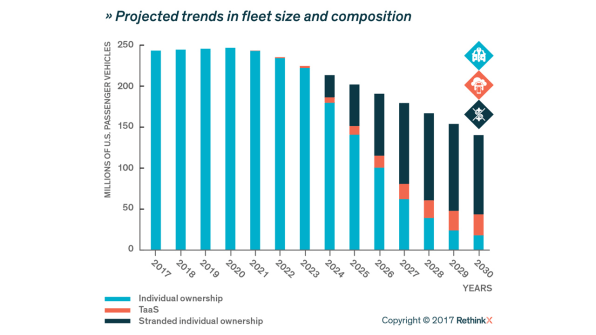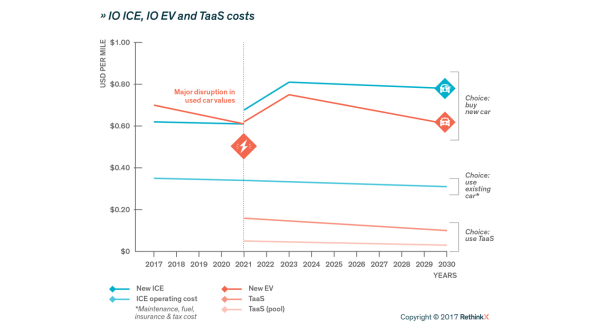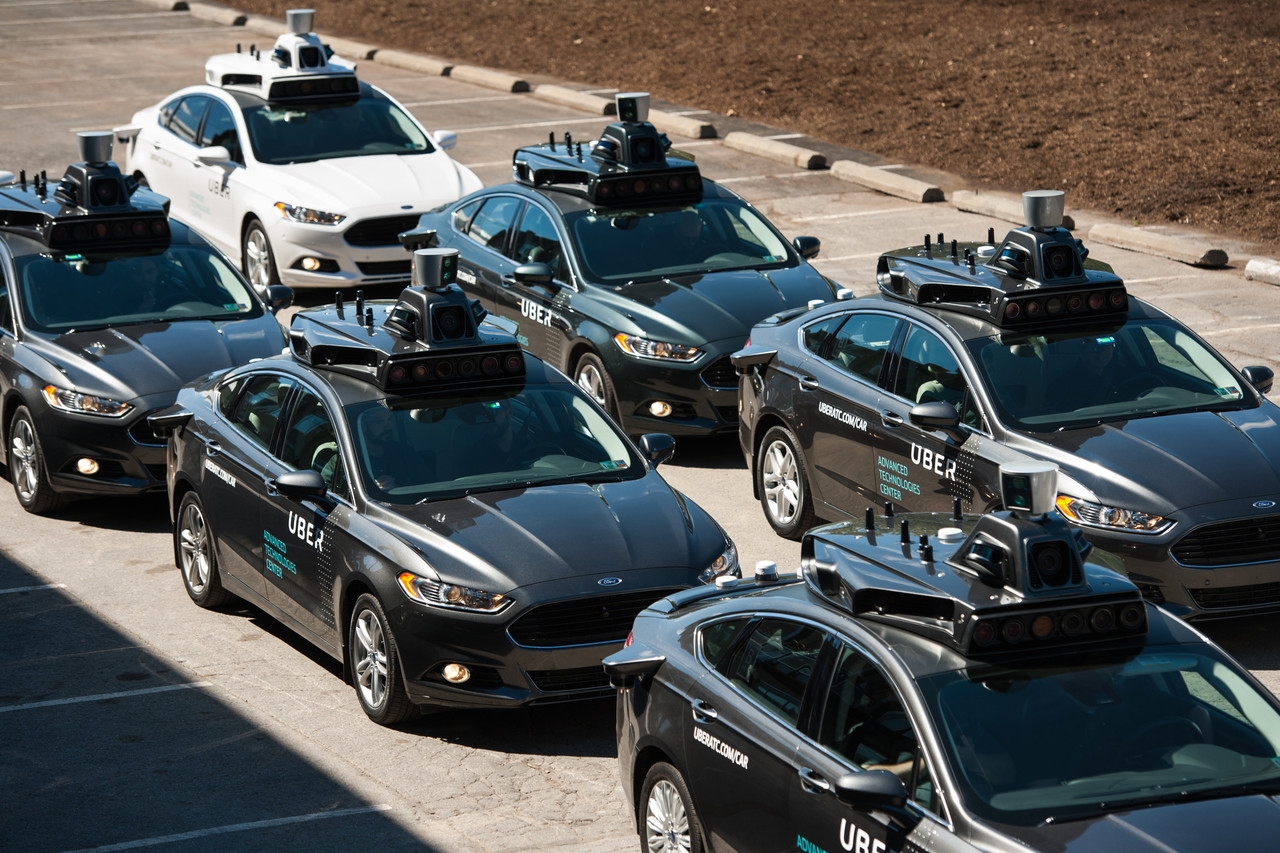Robotics can make owning your own car meaningless

Robomobils have not yet entered public roads, and scientists and analysts are already exploring possible aspects of their operation. The results of the new research show that after robotaxi on electricity will become widespread, owning your own car may become an unnecessary luxury, since new vehicles will be much cheaper than owning a car. True, this will happen no earlier than 2030, so for now it’s not worthwhile to give up the car in your garage.
The authors of the study in question, argue that traveling on electric cars, taxis with automatic control system will be a cheap pleasure. According to some analysts, as early as 2030, 95% of passengers will move from point A to point B on request. That is, there was a need, caused electric taxi, went. Savings, compared with owning their own cars, promise solid - up to $ 5,600 per year. That is, if you choose a robotaxi, a person will save as much money per year as would be enough for a good used car in the USA.

')
Now most of the forecasts of futurologists regarding electric cars are made taking into account linear dependence. But not everyone agrees. In particular, this is how James Airbib, a venture capitalist from London, and one of the co-authors of the Rethinking Transporation study, thinks so. He says, in particular, that technologies are developing non-linearly, qualitative changes here occur quite often with the transition to a new level of development.

According to the report, the legislative framework governing the work of unmobiles should be prepared by officials from different countries. This opinion agrees with the forecasts of most scientists, who argue that the mass output of rob-mobiles on the roads will occur in 2020-2025, after which the trend to replace conventional cars with smart ones will only intensify. In some countries, officials have already thought about the preparation of an appropriate legislative framework. First of all, this applies to the UK and several US states (for example, California).
The authors of the study welcome the development of robotic vehicles, since, in their opinion, this will allow to drastically reduce the number of accidents, including fatalities for participants in such accidents.
10 years later, after reliable ro-mobiles will start to appear on the roads of different countries, and officials will create a positive legislative atmosphere for such vehicles, what has been said above will happen. Namely, if even someone will have their own car in the garage, then all the same, this person will make most of the trips on robotized taxis running on electricity.
This will also happen because in the future transportation services will be provided as a service on a much broader scale than now. At the same time, a trip by private car per 1 mile will cost 4-10 times more expensive than a trip to a robotaxi. Well, a joint trip with other passengers (using services like UberPool) will cost only about 3 cents per mile.
The cars themselves will be cheaper for several reasons. First, since robo-mobiles are much less likely to have accidents, insurance will be cheaper. In addition, the robotaxi is likely to be involved constantly, and this means cheaper trip cost (now a personal car is used 4% of the time, the rest of the time is simple). There are exceptions, of course, but not so many. Plus, electric charging is cheaper than refueling at a gas station, and in the future the trend towards lower prices will be more and more noticeable. An electric car requires less attention in terms of service, which will also reduce service costs and ultimately, the cost of travel.
In an ordinary car with an internal combustion engine, there are thousands of moving parts. In an electric car, they are much smaller, which means fewer breakdowns compared to cars with ICE. The release of a large amount of heat and vibration from a running engine also leads to a more rapid vehicle failure than that of an electric vehicle. On average, a car with an internal combustion engine can last 320 thousand kilometers. Electric car - 800 thousand kilometers and more.
This means that transport companies of the future that will work with robots on electricity will be able to spend less money and effort on servicing the entire fleet of vehicles. The cost per mile / kilometer of the track will be much lower than in the case of a regular taxis. And naturally, when an ordinary person sees that a taxi costs him less than his own car, and is much cheaper, then in most cases (not all) the choice will be made in favor of a taxi.

So far, robotic cars look like
Ultimately, this will have a significant impact on the economy. The oil and gas industry, for example, will lose its main consumer. Many professional drivers will have to repurpose. In the general case, according to the authors of the study, the distribution of ro-mobiles with electric motors will help to expand the current volume of the global economy.
“It seems to me that sooner or later the time will come when we come to the decision to ban car driving” in the city, ”say the authors of the study. Or, special roads and places will be created. As soon as it is proved (over time) that roboomics are safer than normal driving, public opinion may change, and the concept of robotization of driving will be adopted.
The full report can be found here .
Source: https://habr.com/ru/post/373529/
All Articles